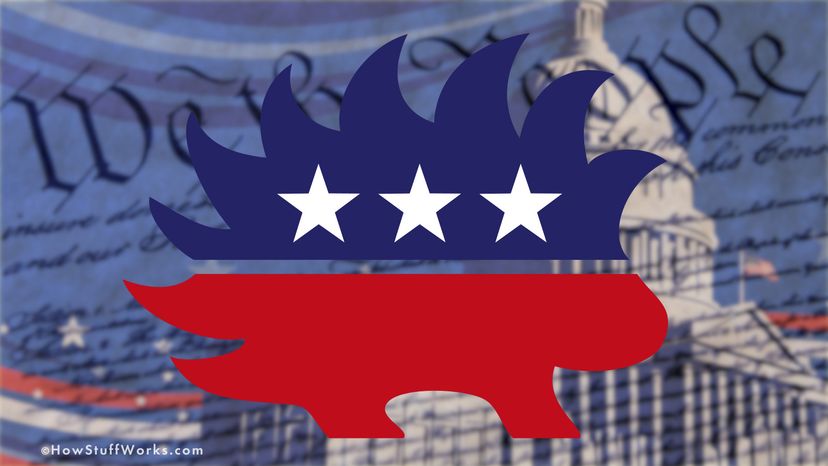The 10th Amendment, even in those 28 short words, four clauses, three commas and single period, is open to a great deal of interpretation. But let's, for the moment, take it literally: If the Constitution doesn't spell out a certain power or powers to the federal government (the "United States"), those powers belong to the states or the people.
"They [the constitutional framers] didn't want the federal government to be huge," says Honor "Mimi" Robson, the chair of the Libertarian Party of California. "They didn't want the federal government to be involved in the citizens' day-to-day lives."
Some people, both in and out of the Libertarian Party, view the 10th Amendment very narrowly. They contend that many powers that the federal government now claims — things represented by, for example, the U.S. Department of Education, or even Supreme Court decisions that allow for things like same-sex marriage throughout the U.S. — should not be held by the feds. The U.S. government is infringing on the states' rights to decide how children are taught in their state, for example, or whether same-sex marriage should be allowed. That should be up to the states, they say. Those are states' rights.
Now, you might argue, government is government, whether it's at the state or federal level (or both). And multiple levels of government, some absolutely will argue, is bad.
But most out there understand the need for some government. And government at the state level, close to home, the argument goes, is better than edicts being flung from the feds in Washington. From the Tenth Amendment Center:
People arguably have more control and influence over smaller governmental units. Even if they don't, multiple small power centers make it possible to flee from particularly oppressive jurisdictions and create an environment of "competition" between governments.
Few would suggest that no federal government is needed, either. And, indeed, the Constitution enumerates certain powers solely to the U.S. government, including the ability to tax, to provide for the national defense, to regulate commerce (both within the states and internationally), and to determine who becomes a citizen.
But many Libertarians, and many others, argue that the U.S. government has vastly overstepped those powers enumerated to it and, in doing so, has trampled on the 10th Amendment. The disagreements, inside the Libertarian Party and out of it, are exactly where the line between federal rights and states' rights should be drawn.
"If you look at states' rights as allowing states to do bad things to people to take away their rights, that is absolutely not Libertarian," Robson says. She points to the 1967 Supreme Court case Loving v. Virginia, which held that a ban on interracial marriage by the state of Virginia violated the 14th Amendment's Equal Protection Clause. That case provided, in effect, a new enumerated power for the federal government; to protect individuals from states. "States shouldn't be able to say that people who love each other can't get married. Same thing with same-sex marriage.
"I don't believe that that was ever intended to allow states to do bad things to infringe on people's rights just because it's more of a local level," Robson says. "I think that's where some people get kind of confused, in my opinion."


